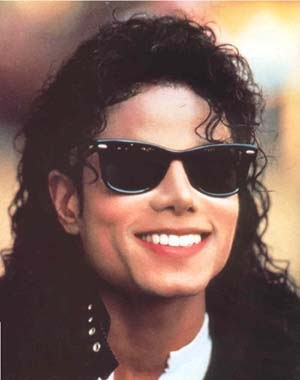Birth name Michael Joseph Jackson
Born August 29, 1958(1958-08-29) Gary, Indiana, U.S.
Died June 25, 2009 (aged 50) Los Angeles, California, U.S.
Genres Pop, disco, dance, rock, R&B, soul, new jack swing
Occupations Singer, songwriter, record producer, composer, dancer, choreographer, actor, author, businessman, philanthropist
Instruments Vocals
Years active 1964–2009
Labels Motown, Epic, Legacy
Move to Epic and Off the Wall (1975–1981)
In June 1975, the Jackson signed with Epic Records, a subsidiary of CBS Records and renamed themselves the Jacksons. Younger brother Randy formally joined the band around this time, while Jermaine left to pursue a solo career. They continued to tour internationally, releasing six more albums between 1976 and 1984, during which Jackson was the lead songwriter, writing hits such as "Shake Your Body (Down to the Ground)", "This Place Hotel," and "Can You Feel It". In 1978, he starred as the scarecrow in the musical, The Wiz, a box-office disaster. It was here that he teamed up with Quincy Jones, who was arranging the film's musical score. Jones agreed to produce Jackson's next solo album, Off the Wall. In 1979, Jackson broke his nose during a complex dance routine. His subsequent rhinoplasty was not a complete success; he complained of breathing difficulties that would affect his career. He was referred to Dr. Steven Hoefflin, who performed Jackson's second rhinoplasty and subsequent operations.
Jones and Jackson produced the Off the Wall album together. Songwriters for the album included Jackson, Rod Temperton, Stevie Wonder, and Paul McCartney. Released in 1979, it was the first album to generate four U.S. top 10 hits, including the chart-topping singles "Don't Stop 'til You Get Enough" and "Rock with You". It reached number three on the Billboard 200 and eventually sold over 20 million copies worldwide. In 1980, Jackson won three awards at the American Music Awards for his solo efforts: Favorite Soul/R&B Album, Favorite Soul/R&B Male Artist, and Favorite Soul/R&B Single for "Don't Stop 'Til You Get Enough". That year, he also won Billboard Year-End for Top Black Artist and Top Black Album and a Grammy Award for Best Male R&B Vocal Performance, also for "Don't Stop 'Til You Get Enough". Jackson again won at the American Music Awards in 1981 for Favorite Soul/R&B Album and Favorite Soul/R&B Male Artist. Despite its commercial success, Jackson felt Off the Wall should have made a much bigger impact, and was determined to exceed expectations with his next release. In 1980, he secured the highest royalty rate in the music industry: 37 percent of wholesale album profit.
Thriller and Motown 25 (1982–83)

In 1982, Jackson contributed the song "Someone In the Dark" to the storybook for the film E.T. the Extra-Terrestrial; the record won a Grammy for Best Recording for Children in 1984. In the same year he won another seven Grammys and eight American Music Awards (including the Award of Merit, the youngest artist to win it), making him the most awarded in one night for both award shows. These awards were thanks to the Thriller album, released in late 1982, which was the 1983's best-selling album worldwide and became the best-selling album of all time in the United States, as well as the best-selling album of all time worldwide, selling an estimated 110 million copies so far. The album topped the Billboard 200 chart for 37 weeks and was in the top 10 of the 200 for 80 consecutive weeks. It was the first album to have seven Billboard Hot 100 top 10 singles, including "Billie Jean", "Beat It," and "Wanna Be Startin' Somethin'." Thriller was certified for 29 million shipments by the RIAA, giving it Double Diamond status in the United States. The album won also another Grammy for Best Engineered Recording – Non Classical in 1984, awarding Bruce Swedien for his work. Jackson's attorney John Branca noted that Jackson had the highest royalty rate in the music industry at that point: approximately $2 for every album sold. He was also making record-breaking profits from sales of his recordings. The videocassette of the documentary The Making of Michael Jackson's Thriller sold over 350,000 copies in a few months. The era saw the arrival of novelties like dolls modeled after Michael Jackson, which appeared in stores in May 1984 at a price of $12. Biographer J. Randy Taraborrelli writes that, "Thriller stopped selling like a leisure item—like a magazine, a toy, tickets to a hit movie—and started selling like a household staple." In 1985, The Making of Michael Jackson's Thriller won a Grammy for Best Music Video, Longform. In December 2009, the music video for "Thriller" was selected for the National Film Registry by the Library of Congress, "Thriller" is the first music video ever to be inducted.
MichaelJacksonMoonwalk.ogg
Play video
Jackson debuts the moonwalk during his performance of Billie Jean on Motown 25

Time described Jackson's influence at that point as "Star of records, radio, rock video. A one-man rescue team for the music business. A songwriter who sets the beat for a decade. A dancer with the fanciest feet on the street. A singer who cuts across all boundaries of taste and style and color too". The New York Times wrote that, "in the world of pop music, there is Michael Jackson and there is everybody else".
